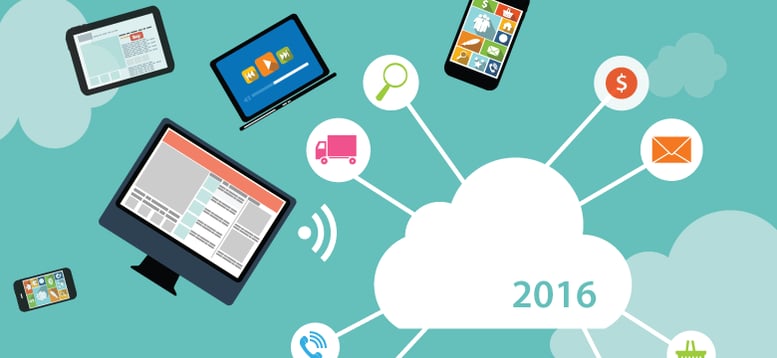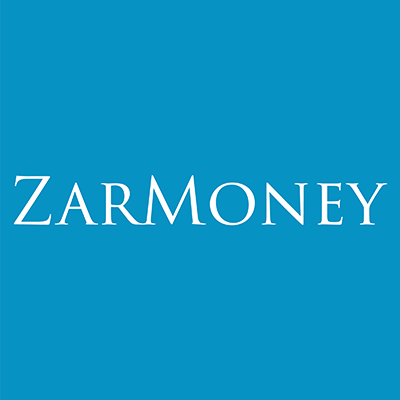Defining Cloud Based Accounting for 2021. What's The Deal?

By now, you have probably at least heard someone talk about cloud-based accounting if you are not already using it yourself. As a matter of fact, experts are labelling 2021 the year of cloud-based accounting because so many especially small business owners are making the switch. As small and medium businesses everywhere turn to the cloud, it is revolutionizing the way they do business. Take a look at some of the ways it is changing accounting in 2021.
1. The way you pay for accounting software has changed.
When you buy accounting software to install into your system, you typically pay a flat fee, receive your software, and that's it. Once the software becomes outdated, you have to start all over, and this is not always cost-effective. With cloud-based accounting, you will throw out those initial fees and start paying a recurring — and often cumulatively much lower — fee for your software. Not only does this mean you receive updates and upgrades at no additional cost, but you also have access to free support and other free features.
2. The way you access your accounting software has changed.
10 years ago, if you wanted to access your accounting software, you had to sit down at your desktop computer, maybe place a CD in the drive, fire it up, wait for it to load, and then search for whatever information you wanted. Those days are almost completely nonexistent. Cloud-based accounting means you can access your software any time from any place, as long as you can connect to the internet. Laptops, smartphones, tablets, you name it. Keep up with your business in real-time from locations all around the world. And not only can you access it from anywhere in the world, but so can your salespeople and your accountant and anyone else you provide with a password.
Today's accounting software isn't just for accounting anymore and it encompasses a whole variety of features like productivity features, inventory management, sales reminders, emailing and task features and more.
For a full list of features of ZarMoney's handy accounting software check this page.
3. Productivity levels are soaring.
Many businesses report that cloud-based accounting has greatly improved their overall productivity. Your employees can enter receipts and sales from their smartphones at home or on the road instead of hanging on to them until they are back in the office. Because it keeps up with your business in real-time, you can check in on any department to see how a project is coming along. You can also make quicker business decisions because of this quick and easy access.
You can create multiple users with access levels to your software, and they all can work simultaneously in the software without interfering with each other or without having to wait for one for another to finish.
4. Increases in security.
Lost or stolen data can be one of the most detrimental things that happen to a company, but with cloud-based accounting, you do not have to worry as much about that happening in 2021. If a thief steals your laptop, he or she cannot just open it up and find your financial information that is stored there on your drive. The person would have to go online and log in to your accounting account. If your office is subject to a hurricane, tornado, flood or fire, you do not have to worry about losing important files. It is all backed up online.
How is it possible?
Cloud companies like Google, Alibaba or Amazon invest massively into data protection, and since they operate with very large data centers, their cost per GB of protected data is minimal. If you try similarly protecting your laptop, it would cost you not much less than then, with the difference that a single Amazon data center can hold up to 80,000 servers, each server with a capacity of hundreds of your laptops.
Cloud servers are quite well secured, but how safe is my data in the cloud? What are cloud companies doing to protect my data?
Among basic safety measures that cloud companies implement we can find:
- Advanced firewalls.
- Intrusion detection.
- Event logging.
- Internal firewalls.
- Encryption.
- Physical security.
- Insurance.
Interested in what is the cloud, how does it work, who owns it and most importantly, how secure your data are in the cloud? Check this article by ZarMoney.
5. Improvements in cloud technology.
Experts predicted cloud technology to sort of mature in 2021. You will see an increase in speed on the horizon. With so many businesses jumping on the cloud bandwagon in 2020, providers must step up and enhance performance — it just makes sense. Another improvement expected is a new technology that makes using the hybrid cloud easier than ever. A hybrid cloud allows a business or organization to integrate public and private cloud data.
6. Storing Data In Cloud Is Faster, Cheaper And Safer
As new technologies develop, storage spaces become more available, storage technology becomes available in more variants and we can save larger data sets on the same or smaller physical space.
Data are cheaper
Taking a year to year comparison might not give you the overview you need, with an increment of perhaps 10% of storage capacity per square cm, but take a look at IBM's first HDD for servers developed in 1956.
In 1956 IBM introduces the world's first magnetic hard disk for data storage. The IBM 305 RAMAC (Random Access Method of Accounting and Control) offers an unprecedented performance by permitting random access to any of the million characters distributed over both sides of 50 two-foot-diameter disks (did you read it? 2-foot-diameter disks). Produced in California, IBM's first hard disk stored about 2,000 bits (2kb) of data per square inch and cost about $10,000 per megabyte. By 1997, the cost of storing a megabyte had dropped to around ten cents.
Looking at the price on Amazon.com for 500 GB and 1 TB computer SSDs today it appears that the best prices are between $0.25 and $0.30 per GB. So let’s say the price of computer SSD storage is about $0.25 per GB (1,000MB or 8,000Mb or 8,000,000kb).
As you can see the price went from $10,000/MB to $0,00025/MB, decreasing to 1/40 millionth. And as the development continues, the price goes even lower.
Data centres are faster and closer
With new types of internet connection, and other invention including Aerogel, non-manned marine equipment and shark repulsors we can connect continents for fraction of price in a fraction of time with much quicker means. It is still an under the oceanic cable, yet it is several times lighter and it can be used in more unfriendly environments.
This allows for faster and better internet connectivity around the world, faster data centers and better data approachability for end users. For end-users the data are stored to the nearest data center, so as more are being built around the world, there is a chance one is being built or planned to be built right now in your country too. This makes your data even quicker and more approachable from your location, and as all data centers are connected, you can view your data from anywhere in the world. The first time you try to view your data from the opposite end of the world, the local datacenter downloads your files from the original data center so you can always access it locally. When you update your data, it sends a copy to the original centre keeping all your data around the world up to date.
Key Takeaways
We can see it now. Having cloud accounting is not only faster, more reliable, more accessible, cheaper and safer, its also smarter. So what is keeping you away from switching from your old cloud-accounting software?

